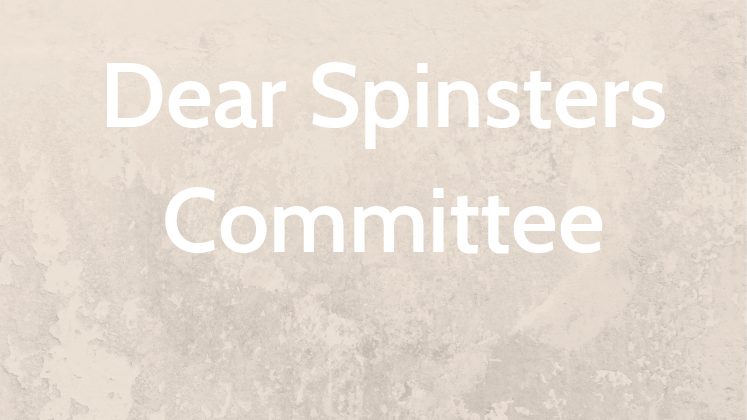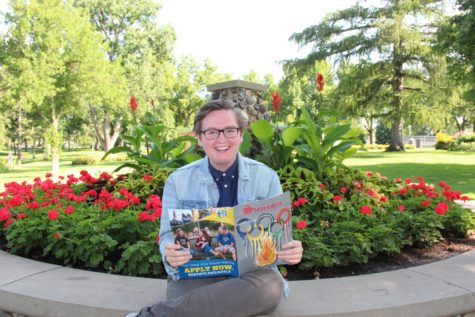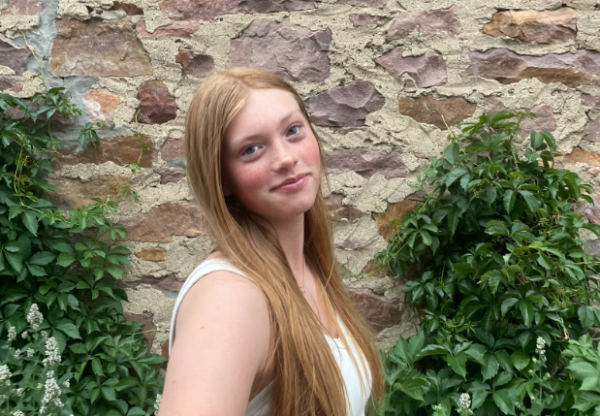It’s time to respin Spinsters
March 4, 2019
This article was originally published in the Statesman in the 2018 April issue.
Often we outgrow conventions that once served as powerful platforms for change. And the Spinsters convention is as tight as a corset.
Spinsters is a district-wide dance where the girls ask the boys. The dance is facilitated by EmBe (formerly the YWCA), who aim to empower “women and families to enrich lives.”
Somewhat counterintuitively, we are writing women out of roles of power by writing them into the Spinsters narrative. Spinsters was founded over 81 years ago. 81 years ago, women were treated as second class citizens. Today we are fighting a significantly more nuanced battle; thus, it is no longer scandalous for women to be the initiators of relationships. This is not to say the inception of Spinsters was in vain. In fact, the founders of Spinsters were trailblazing feminists who helped shape the world today. This is a history we should be proud of, but it is not a history we should be living.
We have outgrown Spinsters; bras have been burnt, yet young women in Sioux Falls are still shackled by damaging social norms disguised as progress.
Moreover, our sharp growing pains are piercing gaping holes through which disadvantaged groups are falling. Those people deserve to be included.
I have a proposal: Inclusion isn’t merely the lack of outright exclusion; rather, genuine inclusion requires proactive and deliberate action. In other words, in order to be inclusive, we must actively invite other people to the table.
Other people are not commonplace at the deeply homogeneous Spinsters dance.
As defined above, Spinsters is a dance where the girls ask the boys. The dance is a round hole, and homosexuality is a square peg. It simply doesn’t work; gay students are invisible in the Spinsters tradition because they are not included in the script.
A few maverick, gay couples boldly flip that script and dive in the hetero-abyss- their bravery is profound. However, not all gays are so gallant, nor should they have to be. It is not queer for a straight couple to attend Spinsters, nor should it, therefore, be for a queer couple. The culture we’ve created at Spinsters requires gays to deviate from 81-year-old standards in order to be included; we have invented social deviants by creating a culture which lacks depth.
Additionally, the shallowness of Spinsters extends beyond forgetting the gays; Spinsters ostracizes the poor and discourages the single.
The cost for a couple to buy tickets to Spinsters is $30; whereas the cost for one ticket is $20. Those prices are too high. With 29.7 percent of LHS students on free or reduced lunch, many students cannot afford the dance. At $30 per couple, a reduced lunch student would have to skip lunch for two weeks to pay for his or her tickets.
Spinsters is a fundraiser in which the profits made serve young women in our community. This year 1,630 students attended and a net profit of nearly $30,000 was made. Truly inspiring. The problem arises when an event designed to make money becomes a social expectation that not everyone can meet. In my experience, most students do not attend Spinsters because they want to contribute to the prosperity of women in the community; instead, students attend because it would be socially unacceptable not to. We are effectively pushing those without economic means to the social edge. High ticket prices at Spinsters fosters the ever-injurious socioeconomic gap.
Furthermore, the disparity between the price for single people and couples is markedly unacceptable. Single people are not a burden and should not be charged more, especially when the canon of the dance inhibits people from finding people to go with.
My solution is fairly simple; we have outgrown Spinsters and it’s time we moved on. Instead of pigeonholing women, let’s have a dance that celebrates women. We can change the name from Spinsters, which conjures images of women forgotten by society because of their lack of beauty and utility, to a name that inspires strength such as the the Ruth Bader Ginsburg dance. We can cheapen the ticket price and have optional donations as well as concessions. We can rewrite the narrative, inviting everyone to participate. We can sell tickets at one price. We can be better. We always can be better.
Update: This year, tickets will cost $40 for a couple and $25 for a single person.









